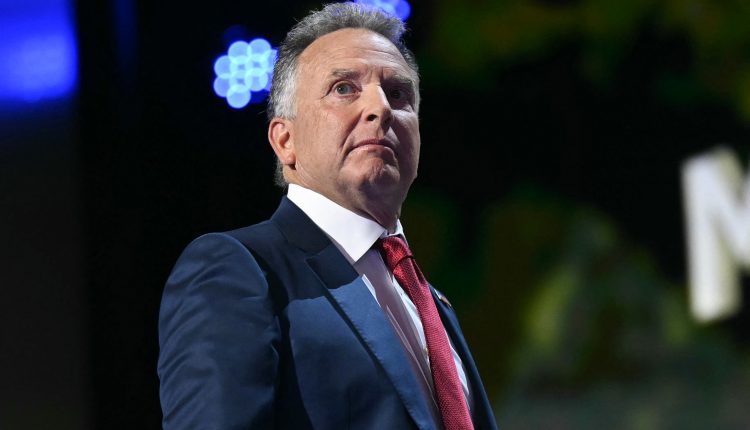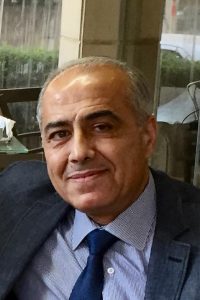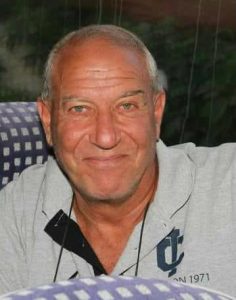
IS STEVE WITKOFF THE AMERICAN SOLUTION-MAKER?

By General Monzer Al Ayoubi*

Translation: Dr Pierre A. Sarkis
US President Donald Trump said about him, “he will be an unrelenting voice for peace, and will make us all proud.” Steve Witkoff, the billionaire golf partner of President Trump was appointed as his envoy to the Middle East after he gained President Trump’s trust and was given, as soon as he entered the Oval Office, two important files at the international and regional levels: to find a compromise formula that would bring to an end Iran’s nuclear program; and bring the Russian-Ukrainian War to an end, both of them being pivotal issues that have geopolitical and international repercussions from all aspects.
Concerning the Iranian file, it seems that things went reasonably well and smooth for the first three rounds of negotiations through statements made by those with insight and analysis. Whereas the postponement of the fourth round was for logistical reasons according to what the Minister of Foreign Affairs of the Sultanate of Oman, Badr Albusaidi proposed, he announced that the percentage of political enrichment for the sustainability and success of the agreement would return to the point of parity, fifty-fifty.
At the same time, the sources of the Iranian delegation explained that “the postponement came against the backdrop of conflicting positions by the US Administration and its attempt to change the general framework of negotiations that was previously agreed upon.” That raises the question if the causes of the conflicting statements and positions are reliable, as opposed to brokering a serious agreement on a strategic level between two countries, the first is the planet’s core and the second plays an important regional role.
To be sure, the White House lawn has always witnessed contradictory statements that may fall under the saying, “words of night are erased by day” without much wonder or interest, as long as the unification of performance and controlled rhythm is directed by the stick of the maestro, President Donald Trump. But behind the scenes is more than announced as the American team considers the discontinuation of the Iranian program to develop long-range ballistic missiles as critical, because of its link to Iran’s nuclear program. In addition, the US team demands that Iran abandons reactors, stop enrichment, transfer the stockpile to Russia or another country and replace International Atomic Energy Agency (IAEA) inspectors by American inspectors. These alarming conditions are almost an imposition of null negotiations, rejected by Iran. Presidential sources confirmed that “the defense capabilities (missiles and drones), as well as, uranium enriched up to 60% and advanced centrifuges are a red line that cannot be crossed” noting that Washington has not supplied the Araqchi-Witkoff negotiations except with contradictory statements, devoid of positives to stimulate direct communication, and even returned to exerting a policy of maximum pressure, targeting Iranian oil sales, according to Iranian spokesman Ismail Baqaei.
Meanwhile, Iranian Foreign Minister Abbas Araqchi has mastered the role of a pragmatic diplomatic negotiator, drawing on his long experience. His name is associated with previous negotiations with the P5+1 negotiating group which concluded the 2015 agreement that eased sanctions on his country, in exchange for restrictions on its nuclear program. He now faces a successful investor and real estate developer, a dealmaker, with a shared characteristic: the sharp intelligence of a talented negotiator. Moreover, their competence means they don’t need to test their ability to seize a moment of intersection, that would ensure they can leap over the barrier of caution previously expressed by Iranian officials (Tehran is cautious about the talks, lacking confidence in progress and with deep doubts about Wahington’s intentions) as the reason for the collapse of the previous agreement after President Trump’s decision was approved during his first term.
Next, the talks are sensitive and thorny for several reasons, the main one being that failure to reach a diplomatic agreement risks a military strike, whether a joint Israeli-American one, which Israeli Prime Minister Benjamin Netanyahu is trying to push for, or a unilateral one without opposition or reservation from Washington. The US President announced his desire to transform the indirect bilateral talks, mediated by Oman, into direct talks to avoid procrastination or delay, presenting Tehran with a last chance to reach an agreement, warning that it would be in “great danger” if they failed.
Under this framework, US negotiator Witkoff is attempting to accumulate positives to ensure success, adopting a “carrot and stick” approach. He seeks to expedite the talks within the two-month deadline set by US President Trump, which has now passed through three Saturdays, while avoiding an undesirable extension that Netanyahu is waiting for, to execute the coup de grace. Then, alarm emerged after the latter was hastily summoned to meet with the US President on April 7, where he was surprised in front of international press reporters, by the launch of negotiations with Iran in the Omani capital, Muscat. Netanyahu’s apprehension turned into a fear of uncertainty about the future of his position, which would result in signing a mediocre agreement that would not eliminate the Iranian threat. Consequently, he would be reluctant to accept it as there is no room for rebellion or evasion with dire consequences with Trump.
Regarding the second file, Russia and Ukraime, and after the fourth round of talks with the Russian President, Witkoff described them as constructive and useful, making direct negotiations between Moscow and Kyiv a possibility. Meanwhile, President Trump considered that work on a comprehensive peace agreement was “progressing smoothly.” It should be noted that the last expanded session of talks touched on numerous international issues according to Yuri Ushakov, the Russian President’s diplomatic advisor. In context, the war is on the verge of ending, with a settlement that highlights the European arena at the geostrategic and economic levels, formulating a comprehensive deal between Washington and Moscow based on the American proposal. This includes Ukraine’s recognition of Russia’s sovereignty over the four regions it controls, as well as, the annexation of the Crimea. It also mentions abandoning Ukraine’s pursuit of NATO membership in exchange of Moscow’s agreement to strengthen its military, or deploy on its territory European peacekeeping forces with limited combat capabilities.
Within this framework, and following the funeral of Pope Francis, St. Peter’s Basilica in the Vatican witnessed the signing of a rare earth mineral investment and economic cooperation agreement between the US and Ukraine. This was the primary condition imposed by President Trump on President Volodymyr Zelensky in exchange of continued support for Ukraine. This diplomatic parallel coincided with preparations for a summit between the US and Russian presidents, amid European Union countries’ caution regarding Putin’s intransigence in linking a ceasefire to impossible conditions that are somewhat acceptable to the US.
Finally, the Pakistan-Indian borders witnessed armed clashes following a terrorist attack in the Indian-administered Kashmir region which killed 26 civilians. New Delhi accused its Pakistani neighbor, Islamabad, of harboring and supporting armed groups. Will the escalation of the armed conflict between the two nuclear-armed states lead to this file being handled by the American solution-maker Steve Witkoff?
Tripoli, 06/05/2025
Scholar in Security and Strategic Affairs
